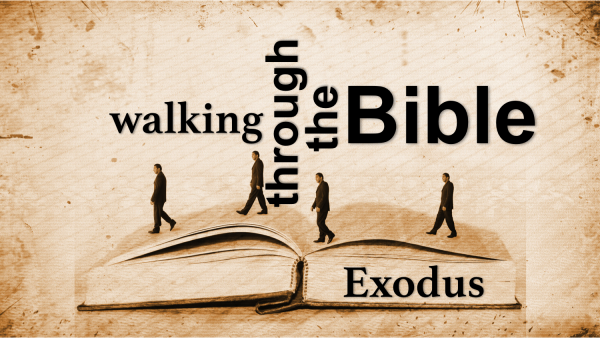Exodus receives its title from that given to it in the Septuagint, the Greek translation of the Old Testament, which means “going out” or “departure” and is drawn from the main thrust of the book’s record, that of the Israelites coming out of Egypt. All credible evidence indicates Moses to be the inspired penman of this book, including the fact that the first word of the text in the Hebrew language is “and” showing it to be a continuation of the Genesis record, also written by Moses. And who better qualified to write the history of Israel and her relationship with God than the leader of Israel and her mediator to God? It likely was written near the close of the forty-year wilderness wandering that occurred in around 1400 B.C., but the time covered in the text spans an interesting point in Israel’s history.
Israel’s association with Egypt long preceded the tyrannical Pharaoh’s bondage of the multiplied nation. A short time after Abram was called by God to leave Ur of the Chaldees and journey into Canaan the land was stricken with a famine. In order to survive Abram took his family into Egypt to escape the famine. It was then three generations later that Joseph was sold into Egypt by the Midianites who had bought him out of the pit into which his brothers had cast him. After becoming the overseer of the house of Potiphar, Joseph’s brethren entered Egypt, later followed by Jacob their father. It is with this brief summary of events from the last several chapters of Genesis that Exodus opens with seventy souls of Jacob’s children in Egypt. Seeing that the book covers from Joseph’s death to the building of the tabernacle in Sinai, Exodus spans a period of some 215 years, the first chapter covering about 135 of those years, and the final 39 chapters covering the first 80 years of Moses’ life, the other of the 215 years.
Moses’ purpose for writing this book is manifold in nature. It continues the redemptive theme began in Genesis 3:15 in relating the seedline of Abraham, Isaac, and Jacob through whom the Messiah would come (Genesis 12:1-3; 22:18). Also it records the history of Israel as being in bondage yet being subject to physical redemption as they were led out by the hand of God and overseen by His servant Moses. Then it continues as a brief exposure of idolatry and false, vain worship as God establishes Himself as the one only and true God. And then it finally teaches the eternal lesson that obedience to God’s precepts (including works) are absolutely necessary in order to receive the promised blessings. There is so much to learn from so many lessons in Exodus, but it is that which should be magnified and studied in awe because of the infinite mercy and wisdom of God.
Exodus carries with it two basic themes that really tie together: redemption and deliverance, both foreshadows of what is available in Christ. Israel was able to find redemption both in and out of Egypt; in Egypt through the Passover lamb to save the firstborn and out of Egypt through the atonement offerings. However, also deliverance is a major theme in Exodus because the book opens with Israel in bondage and closes with them free and headed toward the land of promise. As mentioned, these two themes pointed forward to what is available in Christ. Redemption is found through Christ being man’s Passover Lamb and Atonement Offering for sin today (John 1:29,36; Romans 5:11). Then, also, Christ is the one through whom deliverance from the bondage of sin is made possible (Hebrews 2:15-18).
However, the real value of the book is in its portrayal of Christ to come. First, Moses’ life is recorded and is evident to be a type of Christ, as both were prophets, rulers, lawgivers, deliverers, etc. Then Christ is seen as the Passover Lamb (I Corinthians 5:7). Also, Christ is seen in the establishment of the Levitical priesthood, as He is the church’s Great High Priest today (Hebrews 4:14-16; 9:11-12,24-28). Finally, because to list all would be impossible, Christ is seen in the building of the tabernacle wherein the church of Christ is in many ways designed (figuratively) like unto that tabernacle (Hebrews 9).
The book of Exodus contains so much that is beneficial for all areas of Bible study it is hard to put it into words. But may its inspired text forever be studied in its context and in its importance to the glory of God.

